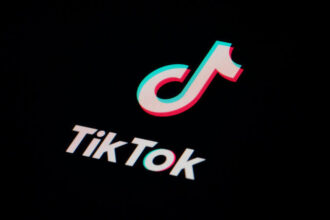In Nigeria’s fast-growing startup ecosystem, your pitch deck is your ticket to funding.
Whether you’re at a Lagos demo day or pitching virtually to diaspora investors, the difference between a “maybe” and a “yes” often comes down to how well you tell your story — clearly, confidently, and concisely.
What Exactly Is a Pitch Deck?
A pitch deck is a brief presentation — often 10 to 15 slides — that gives potential investors an overview of your business. It’s not just about numbers or jargon. It’s about showing your passion, your problem-solving, and your potential for profit.
Think of it as your startup’s first impression.
1. The Problem – What Are You Solving?
Start strong. Nigerian investors want to know the issue you’ve identified and why it matters.
Example:
“Over 80% of small businesses in Nigeria struggle with inventory management due to lack of affordable tech solutions.”
Tell a story. Maybe it’s your cousin in Aba whose fashion business collapsed from stock mismanagement. Make it relatable. Make it real.
2. The Solution – What Are You Offering?
Now that they feel the pain, show them your cure. Explain your product or service in simple, compelling terms.
Tip: Include a mock-up or short demo. Nigerian investors appreciate practicality.
Example:
“We built ShopFlow — an easy-to-use inventory and sales tracking mobile app tailored for small retail businesses in Nigeria.”
3. Market Opportunity – How Big Is the Opportunity?
Investors want to know you’re playing in a big-enough market.
Use local data when possible.
Example:
“There are over 40 million MSMEs in Nigeria, representing a potential market size of ₦3.2 trillion annually.”
Keep it clear, not overwhelming.
4. Business Model – How Will You Make Money?
Be direct. Freemium? Subscriptions? Commissions?
Example:
“Our app uses a freemium model. Basic features are free, while advanced tools cost ₦2,500 monthly per business.”
Show you’ve thought through revenue sustainability, not just “we’ll figure it out later.”
5. Traction – What Have You Achieved So Far?
Even if you’re pre-revenue, show momentum.
- How many users?
- Any early sales?
- Partnerships?
Example:
“Since launch, we’ve signed up 5,000 users across 10 Nigerian states, with a 30% monthly growth rate.”
Local traction is golden.
6. Go-to-Market Strategy – How Will You Reach Customers?
Nigerian investors are wary of “build it and they’ll come.” They want a plan.
Will you use:
- WhatsApp campaigns?
- Market activations?
- Influencer partnerships?
Example:
“We’re working with micro-influencers in Ibadan and Abuja to reach retail shop owners directly.”
7. Competition – Who Else Is Solving This?
Don’t say “we have no competitors.” That’s a red flag.
Instead, position yourself smartly.
Example:
“Unlike foreign apps like Vend, ShopFlow is built for local users — offline-first, in Pidgin-English, and compatible with entry-level Android phones.”
8. Team – Who’s Building This and Why You?
Nigerian investors invest in people, not just products.
Show your team’s expertise, experience, and passion.
Example:
“Our CTO previously led mobile dev at Paystack. Our CEO is a second-time founder with experience in retail supply chains.”
Include photos and LinkedIn links if possible.
9. Financials – What Are the Numbers Saying?
Even if you’re early-stage, show a 12–24 month projection.
Keep it realistic. Nigerian investors have seen it all.
- Revenue forecast
- Operating expenses
- Cash runway
Tip: Have your assumptions ready, even if not on the slide.
10. The Ask – What Do You Need and What For?
End with clarity. Don’t make them guess.
Example:
“We’re raising $100,000 to expand our dev team, acquire 20,000 new users, and enhance our analytics engine.”
Show a basic fund allocation breakdown (e.g., tech, marketing, salaries).






